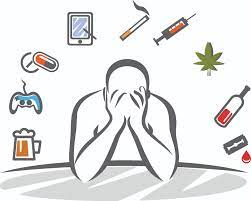FAQ & Information about Alcohol Treatment
Immediate
Placement Available at our Top-Rated Treatment Centers.
Please call us at (855) 410-4488. We work
with most major insurance providers and offer flexible payment
options!
Atrium Addiction Care offers a variety of treatment choices and programs for individuals struggling with drug or alcohol addiction. Our inpatient treatment programs are designed for those who have more severe substance use problems and require 24-hour care. We admit both voluntary and involuntary patients.

Alcohol addiction is a major problem affecting millions of individuals across the globe. It not only affects an individual's physical and mental health but also their relationships, work performance, and overall quality of life. Seeking help for alcohol addiction can be overwhelming, confusing, and daunting for many individuals who are struggling with this issue.
The purpose of this article is to provide comprehensive FAQ & Information about Alcohol Treatment offered by Atrium Addiction Care. Atrium Addiction Care is a leading and only treatment center and provider full of specialized treatment programs aimed at helping individuals overcome alcohol addiction. They offer evidence-based interventions that have been proven effective in treating various stages of alcohol addiction space other use disorders.
In addition to traditional counseling approaches, they also utilize holistic methods such as meditation, yoga, and exercise to address the underlying causes of addiction. Through personalized care plans tailored to each individual's unique needs and circumstances, Atrium Addiction Care provides compassionate support and guidance throughout every stage of recovery.
This article will provide readers with key information on what services are available through Atrium Addiction Care, how the treatment process itself works from intake to discharge, various insurance and treatment provider coverage options, common questions frequently asked questions made by clients seeking treatment as well as additional resources for those looking for more information on alcohol treatment options.
What Is Alcohol Addiction?
Alcohol addiction, also known as alcoholism or alcohol use disorder (AUD), is a chronic disease characterized by the compulsive and uncontrollable consumption of alcoholic beverages. It develops due to various causes such as genetic factors, environmental influences, social pressure, mental health conditions, and traumatic experiences.
Alcohol addiction can affect anyone regardless of age, gender, ethnicity, or socioeconomic status. The symptoms of alcohol addiction vary from person to person but generally include the inability to control drinking behavior despite negative consequences like legal problems, relationship issues, job loss, and health complications. Other signs may include frequent cravings for alcohol, withdrawal symptoms when trying to either to quit drinking, stop drinking, or reduce intake, and tolerance development that requires larger amounts of alcohol to achieve desired effects.
If alcohol problems are left untreated, alcohol addiction can lead to severe physical and psychological damage. Recovery from alcohol addiction is possible with proper treatment and support. The recovery process in alcohol rehab usually involves medical detoxification followed by behavioral therapy and counseling sessions that address underlying psychological issues and teach coping skills for avoiding relapse triggers.
Family involvement and peer support groups are also essential components of successful recovery. Prevention strategies such as education programs on responsible drinking habits and early intervention for individuals at risk can help reduce the prevalence of alcohol addiction in society.
What Types Of Treatment Are Available? - withdrawal symptoms
Alcohol use disorder (AUD) is a chronic disease that requires comprehensive treatment to achieve lasting recovery. There are various types of treatment options available for individuals struggling with AUD. The type of treatment needed depends on the severity of the addiction, any underlying mental health problems or conditions and individual preferences.
Inpatient and outpatient treatments are two primary forms of alcohol addiction care. Inpatient programs require patients to reside at a facility full-time during their treatment while in outpatient treatment programs, patients attend therapy sessions several times per week but continue to live at home. Both approaches offer benefits and drawbacks; inpatient provides constant supervision and support, while outpatient treatment allows patients to maintain employment or familial responsibilities.
Medication-assisted treatment (MAT) involves medications like Acamprosate or Naltrexone used alongside behavioral therapy which helps reduce cravings, manage severe withdrawal and other withdrawal symptoms, and prevent relapse.
Behavioral therapies such as Cognitive-Behavioral Therapy (CBT), Motivational Interviewing(MI), Dialectical Behavior Therapy(DBT), and Contingency Management(CM) address negative thinking patterns and behaviors associated with addiction by helping the patient develop coping mechanisms, stress management skills, healthy communication skills, etc.
Support groups such as Alcoholics Anonymous(AA), SMART Recovery(SR), LifeRing Secular Recovery(LSRL) provide peer-to-peer support where members share experience strength hope along with helpful tips on how to stay sober.
Aftercare planning includes ongoing therapy sessions after completing formal rehabilitation periods that help people avoid triggers that could lead them back to substance abuse.
Overall, there are many different types of treatments available depending upon individual needs for those seeking help for alcoholism/addiction alcohol related problems only. It is highly recommended that one consult with an experienced professional who can give guidance regarding best practices for achieving their long term recovery and-term sobriety goals through careful consideration of these factors mentioned above before choosing what approach works best for him/her personally.
What Are The Benefits Of Alcohol Treatment?

Alcohol treatment is a critical step towards achieving sobriety and improving one's overall health. The benefits of alcohol treatment extend beyond just abstaining from drinking alcohol, as it also provides individuals with the necessary support to maintain sobriety long-term.
With the help of trained health professionals here, individuals can learn coping mechanisms and strategies that assist in managing cravings and avoiding triggers.
Sobriety support is an integral component of alcohol treatment. Support groups offer individuals the opportunity to connect with others who are going through similar experiences and provide a sense of community. These groups serve as safe spaces for individuals to share their struggles and triumphs while offering encouragement and accountability.
Personal growth and family healing are additional benefits of alcohol treatment. As individuals progress through treatment, they often gain insight into themselves and their relationships with loved ones, which leads to personal growth and emotional healing. Family members may also benefit from participating in group therapy sessions or other family counseling programs, where they can learn how to best support their loved ones on their journey towards recovery.
Relapse prevention is another crucial aspect of alcohol treatment. Treatment centers and facilities typically provide ongoing care after initial treatment ends, including follow-up appointments, access to alumni networks, and continued participation in support groups. By the treatment centers and other alcohol rehab and facilities providing these resources, individuals have access to continuous support throughout their recovery journey, which helps them avoid relapse.
In summary, undergoing alcohol treatment offers numerous benefits such as improved health outcomes, sobriety support systems, opportunities for personal growth and even family member support for healing as well as effective relapse prevention measures. It supports individuals' physical and mental health services administration and by guiding them towards abstinence from harmful substances; however, its impact extends far beyond this realm by facilitating social connections among peers thereby helping patients grow emotionally while encouraging healthy familial relationships for better outcomes post-treatment.
How Does Atrium Addiction Care Help? - alcohol abuse
Atrium Addiction Care provides comprehensive clinical care professional treatment for individuals struggling with drug abuse alcohol misuse. Their approach includes evidence-based treatments such as cognitive behavioral therapy and medication management.
Additionally, Atrium Addiction Care supports holistic addiction treatment, to promote healing of the mind, body, and spirit. This treatment includes things such as yoga group therapy, art therapy, mindfulness group therapy, family therapy and nutritional counseling.
Clinical Care - family therapy
When it comes to clinical care, Atrium Addiction Care employs a comprehensive treatment approach that takes into account the unique needs of each patient.
Upon admission, patients undergo a thorough assessment process to determine their individualized therapy options and medication management plans. This includes evaluating any co-occurring mental health disorders or physical health concerns that may be contributing factors to substance abuse.
A key aspect of our clinical care is relapse prevention. We understand addiction as a chronic disease and recognize that recovery is an ongoing process. Therefore, at treatment center we provide education on coping mechanisms and strategies for managing triggers in order to maintain abstinence, manage withdrawal symptoms, and prevent relapse after treatment has ended.
Our team works closely with patients throughout their time at our facility to develop personalized aftercare plans that support long-term sobriety. With our comprehensive approach to clinical care, we strive to empower individuals struggling with opioid addiction to achieve lasting recovery.
At Atrium Addiction Care, we believe that effective clinical care involves addressing not only the symptoms of addiction but also its underlying causes. Through evidence-based therapies such as cognitive-behavioral therapy (CBT) and dialectical behavior therapy (DBT), patients can gain insight into the root causes of their substance use disorder and develop healthy coping mechanisms for future challenges they may face in life.
Holistic Treatment
In addition to comprehensive clinical care, Atrium Addiction Care also offers a range of holistic treatments to support patients' physical and emotional well-being. These therapies are designed to complement traditional addiction treatment approaches and provide individuals with tools for maintaining sobriety beyond their time at our facility.
One such therapy is meditation retreats, which allow patients to disconnect from the stressors of daily life and focus on mindfulness practices that can improve mental clarity and reduce anxiety. Nutritional therapy is another important component of our holistic approach, as proper nutrition plays a crucial role in supporting physical health during recovery.
We also offer yoga classes, art therapy sessions, and fitness programs to help patients explore new ways of coping with stress and developing healthy habits. Our goal is to empower individuals struggling with addiction to take charge of their overall wellness by addressing all aspects of their lives - not just their substance use disorder.
What Steps Should I Take To Start Treatment?
Seeking professional help is the first step towards starting a treatment program for substance and alcohol use disorder or disorders. Professional treatment can include behavioral therapies, medications, or a combination of both. Creating a support network is essential for successful treatment outcomes. This can include a family member, friends, or a support group.
Making lifestyle changes to manage symptoms can include avoiding triggers, changing daily routines, and developing healthy coping strategies. Working with a professional therapist can help to identify and address underlying issues that contribute to substance abuse. A comprehensive treatment plan should be tailored to the individual’s needs and should include all of these components.
Seek Professional Help

Seeking professional help is one of the vital steps for individuals who have had alcohol abuse problems or are looking to start an alcohol abuse treatment. There are various types of professional support available to those in need effective alcohol abuse treatment, such as licensed therapists, counselors, and medical doctors specializing in addiction medicine. These professionals can offer personalized treatment plans that cater to an individual's specific needs, including therapy sessions or medication-assisted treatment.
One of the benefits of seeking professional help is access to a wide range of resources that may not be readily available otherwise. A reputable rehab or treatment center can provide individuals with comprehensive care throughout their recovery journey, from detoxification programs to aftercare services.
Moreover, healthcare professionals can also connect patients with community resources like support groups and self-help organizations which play a crucial role in long-term sobriety.
Despite the progress made towards breaking down stigma surrounding addiction and mental health issues over recent years, many people still face judgment when it comes to seeking professional help for alcohol use disorder (AUD).
It's important to remember that AUD is a chronic disease that requires ongoing management similar to other chronic illnesses and physical ailments. Seeking professional help should be considered a brave step towards healing rather than something shameful or weak.
Create A Support Network
Another important step in starting alcohol treatment is to create a support network. This includes surrounding oneself with individuals who are supportive, understanding, and committed to helping the person achieve sobriety. Online resources can be helpful in connecting people to like-minded individuals or groups that provide guidance and encouragement.
Therapy sessions and group meetings can also offer valuable emotional support throughout one's recovery journey. These platforms allow individuals struggling with AUD to share their experiences and learn coping mechanisms from others going through similar issues.
Family and family member involvement can also play an essential role in creating a strong support system as they can provide moral support, practical assistance, and accountability.
For those seeking more structured environments for their recovery journey, sober living homes may be an option. Sober living provides a residential program and a safe space where individuals can receive round-the-clock care while adjusting back into society after rehab. It offers ongoing access to counseling mental health services administration and peer-support groups which help maintain long-term sobriety.
Building a robust support network is crucial for anyone looking to start alcohol treatment as it helps lessen the burden of addiction by providing empathy, insight, and strength during challenging times.
Make Lifestyle Changes
Another crucial step in starting an effective alcohol abuse treatment treatment program is to make lifestyle changes that promote physical and mental well-being. Healthy habits such as regular exercise, adequate sleep, and proper nutrition can help people recover from AUD by enhancing their physical health and reducing stress levels.
These healthy practices also provide a sense of accomplishment and self-worth which can be beneficial for individuals struggling with addiction. Support systems play an integral role in helping people maintain these healthy habits during recovery.
Seeking behavioral therapy sessions or attending support groups can offer guidance on how to establish new routines while breaking old patterns associated with a heavy drinking before.
It's important to note that making significant lifestyle changes takes time, patience, and continuous effort. Physical exercise has been shown to have numerous benefits for those recovering from alcoholism.
Exercise releases endorphins which boost mood and reduce anxiety - two factors often linked to substance abuse disorders. Additionally, working out helps improve cardiovascular function, increase energy levels, and enhance overall fitness.
Incorporating nutritional changes into one's diet can also be helpful in promoting long-term sobriety as proper nutrition provides the body with essential nutrients needed for optimal brain function and emotional stability.
Conclusion
Alcohol addiction is a serious medical condition, liver disease that can negatively impact all aspects of an individual's life. Fortunately, there are various types of treatment available to help those struggling with this disorder. Some approaches include detoxification programs, behavioral therapies, and medication-assisted treatments.
Treatment for alcohol addiction offers numerous benefits, including improved physical health, better relationships, and reduced risk of legal and other mental disorders, health problems, or accidents related to alcohol use.
Atrium Addiction Care provides comprehensive care through personalized treatment plans that consider each person and treatment center's unique needs and goals. Their team of experienced professionals supports patients throughout the recovery process and helps them achieve long-term success in sobriety.
If you or someone you know is experiencing difficulties with alcohol addiction, it is essential to seek professional help as soon as possible. The first step towards recovery from an alcohol problem or to alcohol rehab is acknowledging the problem and reaching out other health professionals for assistance.
By seeking treatment at Atrium Addiction Care, individuals can receive the support they need to overcome their struggles with alcohol abuse and addiction and work towards a healthier future free from substance and or alcohol use and abuse themselves.
Alcohol Treatment FAQ
What is the 1 - 3 rule in alcoholism?
The formula is 0 - 1 - three, which is zero alcohol if the person is underage or driving.
What is the most crucial step in the treatment of alcoholism?
The key to treatment in the case of alcohol-dependent liver disorder (ALSD) is complete withdrawal from alcohol. However, the body has grown accustomed to alcoholic substances so sudden stopping stop drinking can lead to pain.
How long is treatment for alcohol dependence?
The duration of such programs depends on whom seeks addiction treatment first. A therapeutic community alcohol and addiction treatment program generally requires participation lasting between 6 months and 2 years.
Do I need alcohol rehab?
If you want to know if you should seek alcohol therapy you need to know the addictions. The below criteria are adapted from the Diagnostic andStatistical Manual of Mental Disorders. We recommend that people get treatment if they are having an addiction. In most instances, the treatment required depends upon the severity of addiction.
Searching for Treatment Providers
How do we access quality alcohol and drug therapies at the same time in the midst of a crisis if we have no medical insurance?
What happens during alcohol rehab?
Here's a list of basic alcoholic steps for drinking alcohol rehabilitation.
